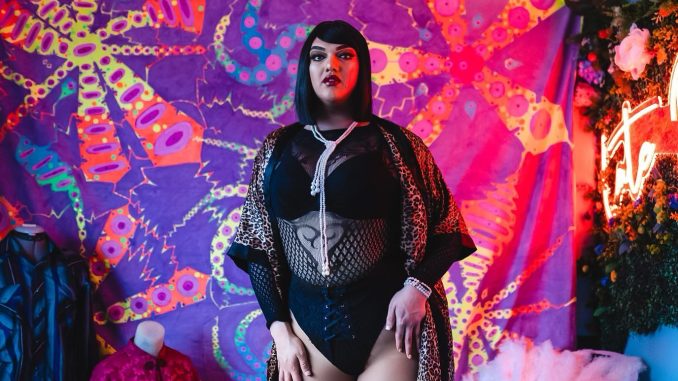
When Kar Solorio Ocegueda was five years old, he donned a wig made from yarn and got on his school swing set, relishing the feeling of his new locks blowing freely in the wind behind him. Though he had moments like these while growing up when he experienced the pure joy of self-expression, they were often bittersweet—he’d cry when other kids would tease him for being “feminine.”
Solorio Ocegueda says he knew then that he was gay, and though he didn’t yet know what drag was, it’s clearly what he was drawn to—he’d also walk around in his mother’s heels, and loved trying on his cousin’s communion dress.
After years of practicing makeup in secret, his drag queen persona Klaudia Banks made her debut in 2019 at The Maltese, and she’s been performing at local venues ever since.
“Drag does something to me I can’t get anywhere else,” he said. When Solorio Ocegueda is performing as Klaudia Banks, “I am celebrated for everything that I used to hide. I’m celebrated for my femininity, being plus-size. … Drag heals my inner child a lot.”
Despite the long history of drag and its popularity in mainstream culture, drag has become the latest target of anti-LGBTQ legislation. In Tennessee, a law was passed to prohibit drag on public property or places where minors could be present. Performers who violate this law (which has been blocked by a federal judge for now) can receive a misdemeanor, felony, fines and/or jail time. Similar bills have been proposed in over a dozen other states.
In Chico, the scene remains a vibrant part of the community, with drag and burlesque shows featuring drag performers presented regularly at venues around town by multiple production companies. The CN&R sat down with several local drag artists to capture what drag means to them—why it’s such such an important part of their identity and self-expression—and how they feel about what’s happening nationally. Local producers of drag shows also shared that they are committed to continuing to create safe spaces for the performers.
Drag for all
Wearing her finest church hat, pearls and lilac shawl, Titi the drag queen opened the pages of Gary the Unicorn and began to read. In this story (written by Michael Nicholson-Dick, the artist personifying Titi), Gary discovers his true identity and how to love and accept himself. Each time Titi triumphantly declared “unicorn,” colorful confetti rained down in celebration.
Titi read the story as part of a video event for children and families, hosted by Stonewall Alliance Center in collaboration with Faith Lutheran Church in 2020. The event also featured an art project, sing-alongs and breathing exercises.
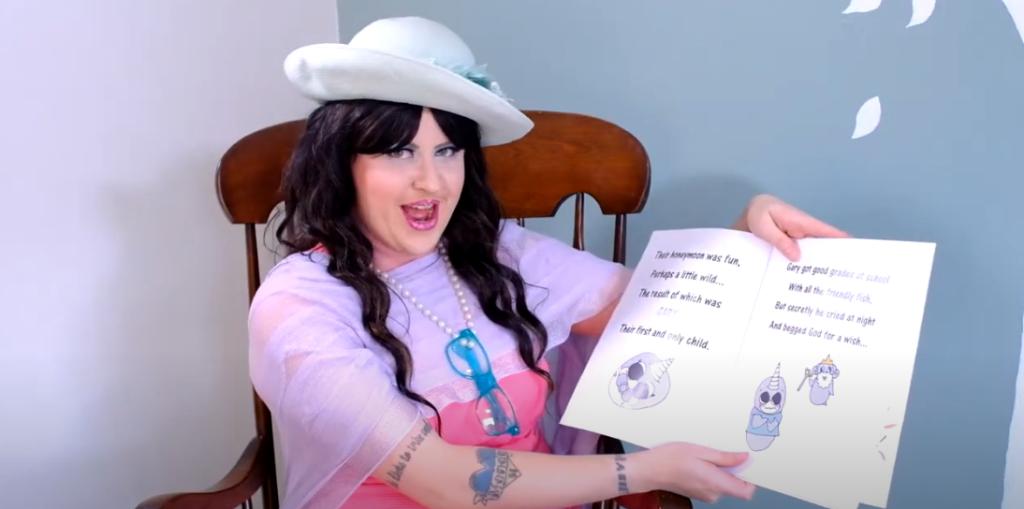
Today, Nicholson-Dick is primarily known for his drag and burlesque performances as Mike Dee with local troupe The Malteazers, but this special moment he shared with the children of his church highlights the fact that drag is a versatile art form, he said. Drag artists know how to tailor a show for their audience, he said, whether it’s a daytime story-time event for children or a bawdy show at a bar for those 21 and older. Titi is a nurturing queen who wants children to know that “you can be whoever you want to be,” he explained. Whereas Mike Dee was “pulled out of a dumpster and thrown on stage.”
The term “drag” has been around since the 1800s and was solidified as a queer art form in the 1950s, when drag artists began performing in bars. In 1969, drag performers were on the front lines of the Stonewall uprising in New York City, a six-day protest of the police harassment, discrimination and criminalization of the LGBTQ community. (At the time, it was illegal for members of the same sex to even show affection in public—e.g., holding hands, kissing, dancing).
Drag became a part of pop culture in the 1970s with prominent figures like drag queen and actor Divine, and its visibility and popularity grew from there. The award-winning television show RuPaul’s Drag Race, which aired its first season in 2009, catapulted drag into the mainstream. Recently, drag brunches and storytime events for all ages have become a fixation for protests and anti-drag laws proposed in states such as Texas, West Virginia, Nebraska and South Carolina. Proponents of these proposed laws argue that children need to be protected from drag, using homophobic tropes accusing LGBTQ performers of being predators grooming children.
Drag has long been a self-expressive performance art form that encourages people to embrace and accept who they are. People want to demonize drag or say that it’s perverse, Solorio Ocegueda said, but “it’s not. It’s just art.
“It sucks that in this day and age we’re being targeted for being ourselves, [embracing] our queer identity and celebrating each other,” he said. “Is it really that you’re scared about kids, or because we’re unapologetically queer and ourselves?”
All-ages events with drag queens were inspirational and affirming for Solorio Ocegueda when he was a teen—they allowed him to meet local drag queens, who he later did his makeup (or “painted”) with, he said.
“It made me go, ‘Wow, these are my people. I am not alone or a weirdo.’”
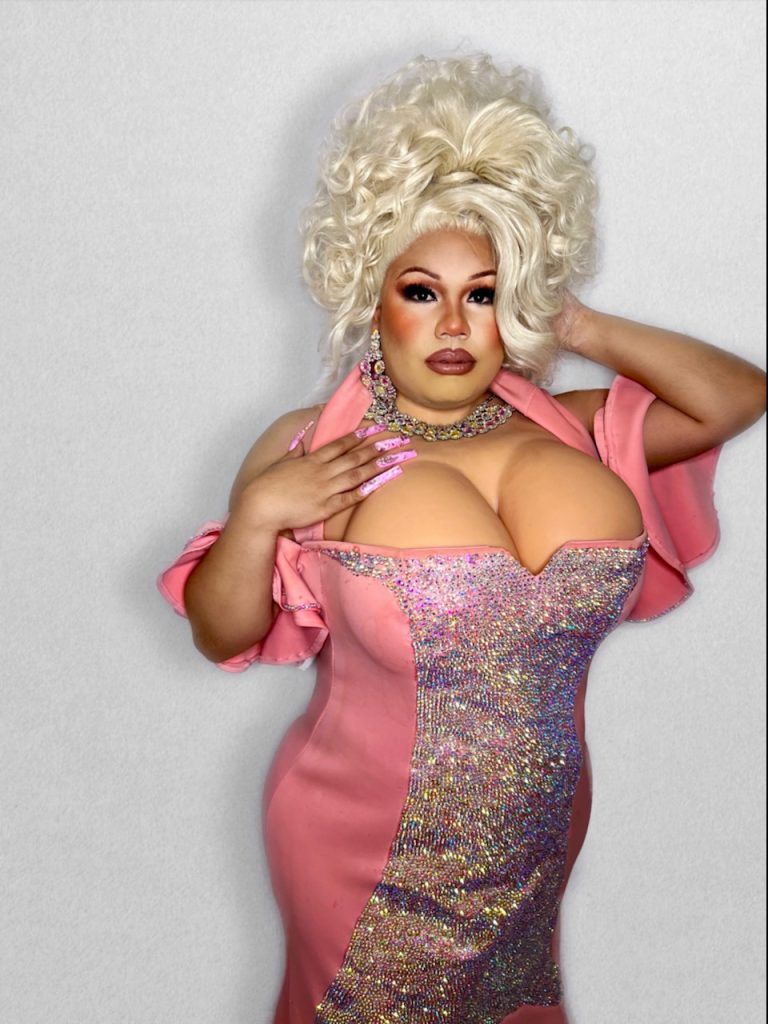
Drag is inspirational for other performers, too. Kasandra Partain, co-founder of The Stardust Revue and co-owner of Atalanta Productions, produces drag and burlesque shows. The drag artists she worked with at The Maltese—the now closed bar that used to be home to many of Chico’s drag events—inspired her and helped build her self-confidence as a burlesque dancer.
“I’ve been able to express myself because I’ve seen drag queens do it themselves, and it’s OK to have an outlet to do that.”
Freedom of expression
When Sierra Hall was a young actor, they often would be cast as a boy in musical theater productions, and the experience gave them “this sense of euphoria.”
“Since I was so little, a lot of people couldn’t tell I was actually a girl. They’d be like, ‘Great job, son,’ and ruffle my hair,” they said. “And I was like, Why does this make me feel so good?”
Their drag persona, LoverBoy (a Justin Bieber-esque performer), is a continuation of that journey of gender expression and identity they have experienced as an adult.
“It’s so freeing. I feel like I can tap into my masculinity. It makes me feel sexy, it makes me feel like a rock star—the girls screaming,” they said with a smile.
Hall recently did a routine where they began in an old-fashioned suit, bow tie and mustache and transformed into a woman. “Drag can be any creative expression of gender,” they said.
This support of gender expression extends to production companies, too. The folks behind Hypnotique Productions started organizing original cabaret burlesque shows in Chico in 2022. Since its inception, owner and Mama Hypnotique herself, Kelsi Judge, has welcomed drag artists and encouraged all performers to explore their gender expression.
“I think my shows are better because they have these incredible drag personalities that are able to tell our stories,” she said. “Bringing in the element of drag is not only important for the performance, but it’s important for visibility and acceptance in our community. … especially during these times right now, where they’re coming under attack.”
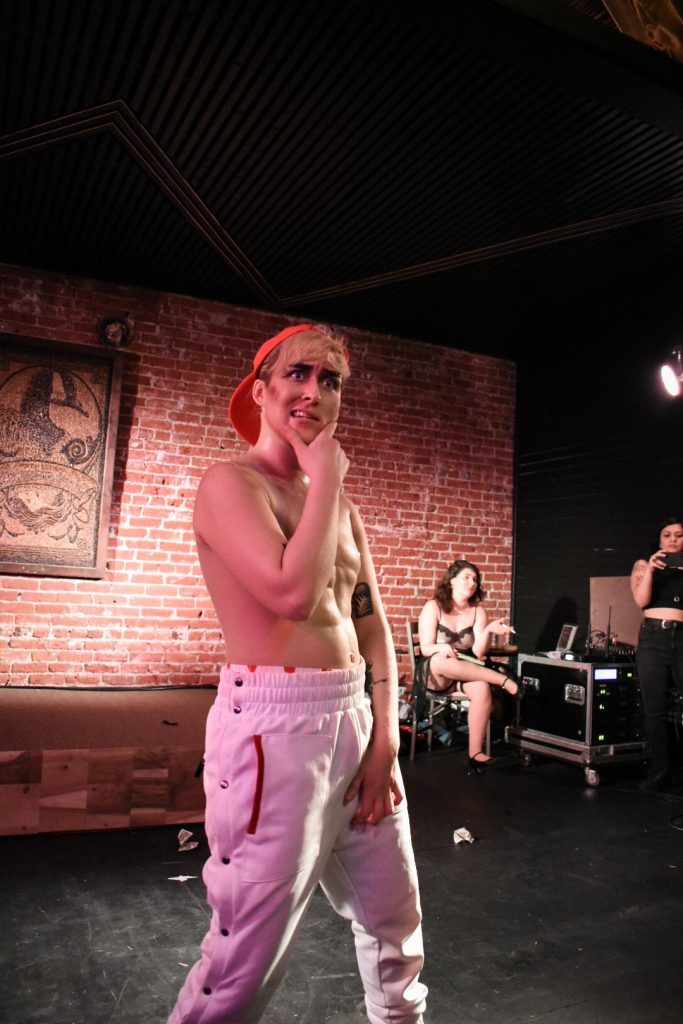
Alex Garcia, (also known as drag queen Miss Ruby Alexander) first did drag when he was in eighth grade, playing Sharpay Evans in High School Musical Jr. He swapped the character’s blonde wig for a black one—which would later become Miss Ruby’s signature look. In fall 2021, Miss Ruby made her debut, and since then, Garcia’s passion for drag and performing has only grown.
“I’ve struggled my whole life with identity, and I think a lot of people have,” he said. Drag allowed him to find a platform to really be himself.
Quashing hate
All of the artists the CN&R spoke with shared their fears of existing in today’s world, where drag performers and the LGBTQ community continue to be targets of hate and violence.
“I, of course, have the constant fear that today is going to be the day someone brings a gun to a show or to Pride,” Nicholson-Dick said. “It’s a hard situation, because I can see how somebody can be turned off and not be who they want to be because they’re afraid … but at the same time, if we don’t have people being who they want to be, we can’t quash hate.”
Hall, who is nonbinary and has a transgender family member, and Nicholson-Dick, a trans man, both shared their concerns about how anti-drag laws could also further encourage discrimination against trans people, as well.
Nicholson-Dick said he can see a trans girl finally feeling comfortable wearing a dress in public and being punished as a result. “I’d be concerned about somebody labeling that as drag and shutting it down. And where would that line be for everybody? Are they going to ban Bugs Bunny and Mrs. Doubtfire?”
“I think that the language is purposefully vague so that they can discriminate against trans people,” Hall added. “That’s why I feel as members of the queer community we really have to band together to protect each other.”
In light of what’s happening nationally, local organizations and production companies have been rallying around drag artists.
Justina Sotelo, events coordinator for Chico-based nonprofit Stonewall Alliance Center, said: “It’s beyond disheartening to see the drag community weaponized, especially considering this community has been the backbone to so many queer and LGBTQ+ spaces by promoting self-love, acceptance, joy and true authenticity.
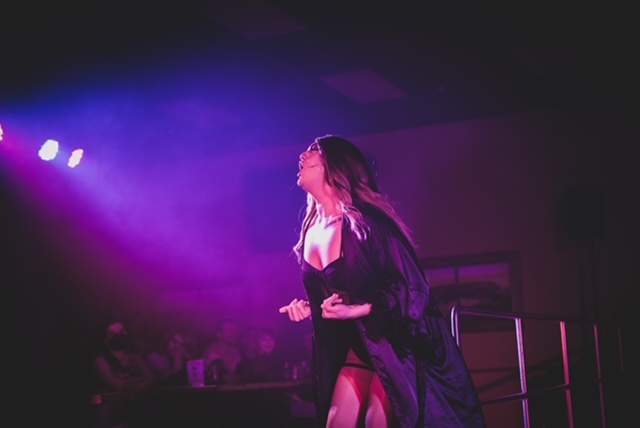
“We fully support and love our drag king and queen community,” she continued. “We have hired these talented performers in the past, and will continue to hire, spotlight, promote, uplift and, of course, wholeheartedly back them.”
Similar sentiments were also shared publicly on social media by Duffy’s Tavern, which hosts The Stardust Revue Shows: “Duffs and the many other supporting local venues LOVE our queens and kings. To hell with legislation and any notion to the contrary.”
Nicholson-Dick, who performs with The Malteazers, said the troupe has found a welcoming, supportive home at Gnarly Deli.
“Drag is part of Hypnotique,” Judge added. It’s important for the public to see drag artists to promote “more visibility, more acceptance and awareness.”
“There will always be a home for drag within my company,” Partain said. “I am a very proud supporter of the drag community, and I’m not going to stop.”
Drag brings joy to people, Garcia said—he sees it on their faces and hears it in their laughter when he and his fellow drag queens, kings and “drag things” perform. Plus, it’s not uncommon for local shows to be sold out or standing room only.
“I think I was put on this Earth to make people happy,” he said. “I love making people smile and feel loved. And it brings me a lot of joy to do that.”
Moving forward, Solorio Ocegueda said that people can protect themselves and others in marginalized communities by voting and donating to LGBTQ and civil rights organizations.
More than ever, he encouraged fellow performers to “celebrate your drag.”
“Highlight drag and make it more visible. Don’t let it go back into the shadows.”
Upcoming drag/burlesque shows:
The Stardust Revue:
April 29, 10 p.m.,
Duffy’s Tavern, $10
Hypnotique Productions presents Nebula:
April 20-22 and 26-29, 8pm, Mulberry Station,
$20-40, hypnotique-productions.ticketleap.com
The Malteazers & Atalanta Productions:
May 5, The Naked Lounge


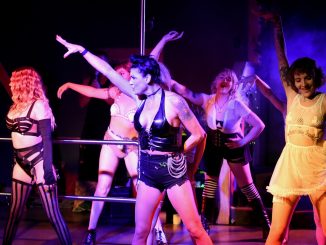
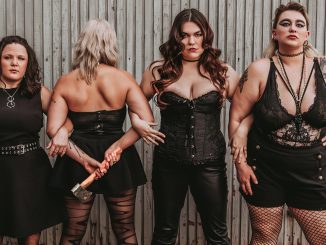
Be the first to comment